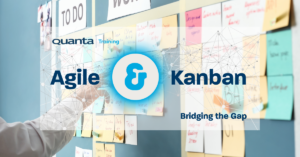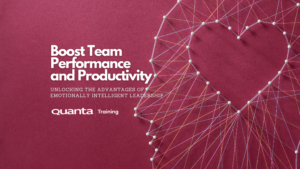Investigate, Model and Improve Business Processes
Business processes are the means by which an organisation carries out internal operations and delivers its products and services to its customers. This course is concerned with the investigation, modelling and improvement of these business processes. Candidates are required to appreciate the hierarchy for business processes, and apply business process modelling techniques within a framework for business process improvement.
This course covers the syllabus and exam for the BCS Certificate in Modelling Business Processes - a Practitioner specialism module for the BCS International Diploma in Business Analysis.
Book Your Course
Start Date
Venue
Availability
Course confirmed - Guaranteed to run
Course Full/Limited availability
Price shown excluding VAT.
Book a Private Event
If you require the content of this event tailored or have around 7 or more people to train it maybe better for you to host a Private Event, please get in touch to discuss this.
Get in touchDescription
Who is this course for
This course is suitable for those who want to obtain the BCS certificate in Modelling Business Processes and learn about the investigation, modelling and improvement of business processes.
It is suitable for those currently working as Business Analysts and other professionals utilising Business Analysis skills as part of their current or future role.
Purpose of the course
This three day course is designed to give delegates a good end to end understanding of Business Process Modelling best practice. The BCS certificate in Modelling Business Processes is awarded to candidates who pass the exam at the end of the course.
You will learn how to
- Identify and model core business processes at an organisational level.
- Identify and model business processes at the process level.
- Identify the events that trigger the business processes.
- Identify the outcomes from the business processes.
- Model the actors, tasks and process flows that comprise a business process.
- Analyse the tasks within a business process.
- Identify the business rules applied within tasks.
- Analyse the performance issues of individual tasks.
- Identify the performance measures applied within a business process.
- Analyse and improve business processes.
Prerequisites
There are no specific pre-requisites for this course, however delegates are expected to be working or have worked in a Business Analysis role or similar.Benefits for you as an individual
Many Business Analysts perform their roles with little formal training or qualification. This course helps to formalise the learning you have done on the job, fills in any gaps you may have and provides guidance on best practice.
It gives you a qualification to take away with you that is universally recognised and valued - BCS Certificate in Modelling Business Processes.
Benefits for your organisation
Modelling your existing business processes well is a vital part of any improvement process. Get this wrong and you are unlikely to be effective.
This robust and effective course ensures individuals and teams have the skills to get this vital early stage right:
- Standardise Business Modelling practices across your workforce
- Bring your team's outputs in line with best practice
- Get less experienced team members up to speed fast
- Grow your Business Analysis capability in the knowledge that new additions to your team have the necessary skills
The context for business process modelling
- Purpose of business process modelling
- Process for business process modelling
- Approaches to business process modelling
- The hierarchy of business processes – organisation, process and task levels
- Differences between the process view and the functional view of an organisation
- Advantages of the process view
Organisational model of processes
- Strategic context for business processes
- Relationships between processes, including those at the same level and between levels of hierarchy
- Building an organizational view of processes
- Delivering value to customers and the value proposition
Modelling the business processes
- Selected business process modelling technique
- Modelling as-is business processes
- Events that trigger business processes
- The outcomes from business processes
- Timelines for business processes
- Business process measures
Documenting tasks
- Identifying tasks – one person, one place, one time
- Documenting steps to complete the tasks
- Documenting business rules
- Task performance measures
Evaluating and improving business processes
- Identifying problems with the as-is business processes
- Analysing the process
- Analysing the handoffs
- Analysing the tasks
- Staff performance issues
- Challenging the business rules
- Modelling the to-be business processes
- Approaches to business process improvement
- Transition
- Integration of business process modelling and requirements definition
- Implementation issues
Additional Exam Information
- BCS Modelling Business Processes multiple-choice examination taken after the course at a time of your choosing
- Exam fee is included in the course cost
- The format of the examination is a one-hour closed-book multiple choice examination.
- 40 Questions - Candidates need to achieve a minimum of 26 marks out of 40 to pass.
Pre-Coursework
We provide a pre-reading document for this course.Delegates should plan to spend around four hours prior to the course completing this pre-reading.
Get Started
Forget trawling through endless course catalogues – Find the training that’s right for you
Learn MoreLatest from our blog
Kanban and Agile: Bridging the Gap
Kanban and Agile: Bridging the Gap Quanta’s Kanban University Certified Trainer Steve Church explores the way in which Agile and…
Read More
How a Ballerina could move into Cybersecurity
Jason Ford, Quanta Cybersecurity and IT Trainer talks about the limitations in Cybersecurity Training courses. Jason discusses a safe and…
Read More
Boost Team Performance and Productivity: Unlocking the Advantages of Emotionally Intelligent Leadership
Quanta People Development and Leadership Trainer, Giles Collins outlines the key elements of Emotionally Intelligent Leadership and how it impacts…
Read More




